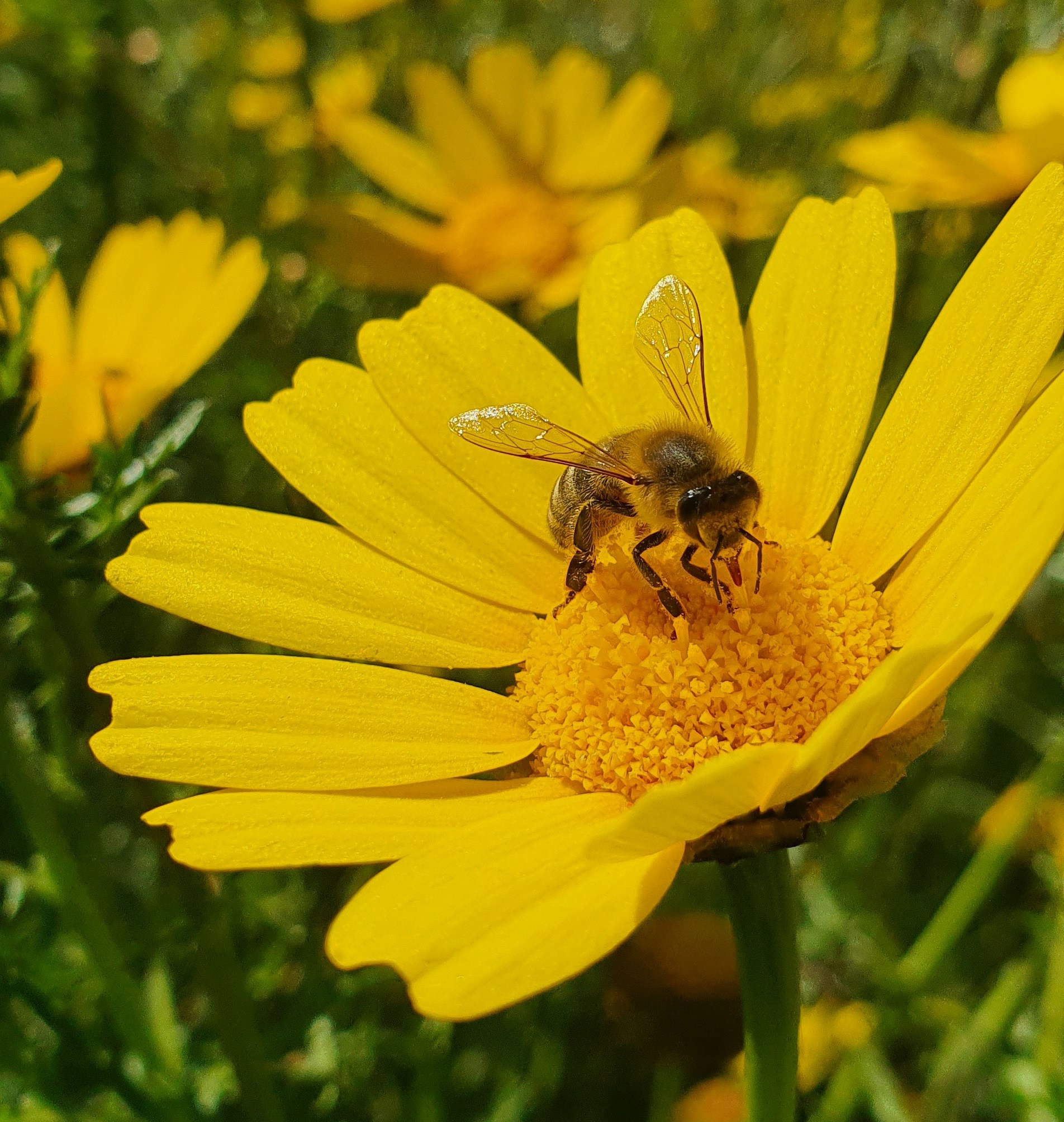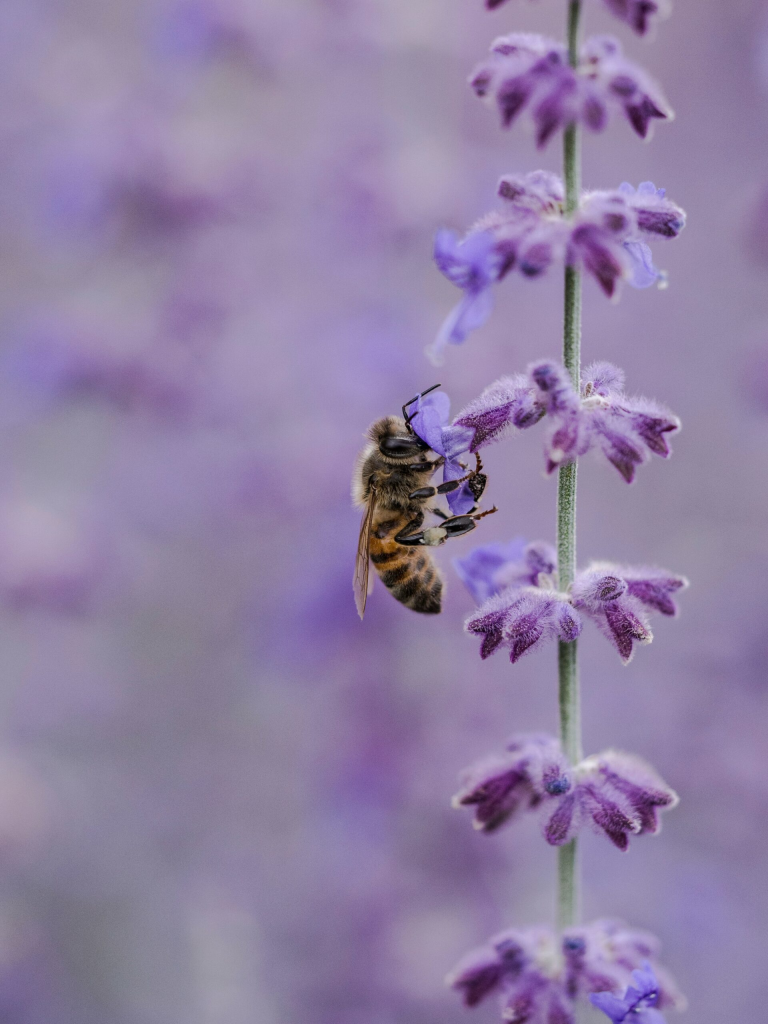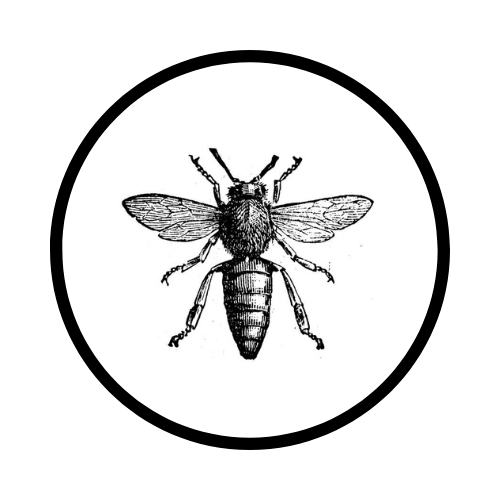
Beekeeping with a purpose

Beekeeping with conservation in mind
Devon Bees is dedicated to the well-being of our local honey bee population. My passion for native honeybees drives everything I do, from breeding native honey bees to promoting sustainable beekeeping practices.
I take pride in producing quality bees and ensuring a positive impact on the genetics of the local honey bee population.
My main mating apiary is situated on our permaculture smallholding. My main nucleus colony apiary is on a local organic farm.
My approach
My approach to beekeeping is based on three things:
Science
Both experience, and the law of natural selection, tells us that native bees are the most suitable strain for sustainable beekeeping.
Conservation
Working with, and breeding native bees counters the contamination of the wild bee population by exotic genes.
Ethical Livelihood
Working as a breeder of locally adapted bees helps fulfil the Buddhist practice of ‘Ethical’, or ‘Right Livelihood’.
What is our native bee?
The Dark European Honeybee (Apis mellifera mellifera) is the original race of honeybee native to the British Isles. Its natural range extends from Britain and across Northern Europe. It is also called the Black Bee.
It can be distinguished from other races of bee by the dark colour of the abdomen and profuse ginger hairs on the thorax.
Most exotic races have more orange or yellow banding on their abdomens. This lighter colouring can be seen in hybrids such as many ‘Buckfast’ bees.
Although achieving a pure strain of bee is virtually impossible in the UK, bees form Devon Bees aspire to be of ‘native type’.
Why choose native bees?
Conservation – By choosing local bees you are playing your part in the conservation of the native, dark honey bee Moreover, the breeding non-native bees usually involves the importation of breeder queens from abroad. This increases the risk of the importation of new pests and disease, such as the ‘tropilaelaps’ mite.
Locally adapted – Locally bred native bees are adapted to the local climate and environment. They are in tune with the local seasons. This means they tend to expand in the spring at a rate that suits the locality. As a result, they do not tend to expand too quickly and so risk starvation when the weather turns bad.
This is in contrast to most exotic strains and hybrids. Their genetics are typically adapted to a more benign Southern European climate. They are prone to rapid build up and depleting their stores. This risks starvation in poor weather or during a dearth period such as the ‘June gap’.
Hardy – Native bees are able to fly at lower temperatures than imported types. Therefore, they are able to forage for nectar and pollen when other bees stay at home. It is not unusual to see them flying in cool conditions and light rain.
Winter hardy – Native type bees are used to surviving our winters better than imports and hybrids. They are able to be frugal with stores. Wild, unmanaged swarms that originate from hives containing exotic strains and hybrids are unlikely to survive the British winter.
This is why most wild colonies are disproportionately quite dark. The summer swarms from yellower hybrids tend to die in their first winter.
Resistant to climate change – Climate change is making our weather more erratic. Native type bees are able to fly in a wider range of weather conditions and keep stores in reserve for a rainy day, rather than turning all their stores into brood. They tend to not need feeding during a dearth and need less feeding to get them through winter than other strains.
Productive – Given the characteristics listed above, native bees are productive bees. This is especially so when you take into account the lower amount of feeding that they are likely to need.
Gentler offspring – Queen bees mate with drones from the general population of bees in the area. Despite the common use of imported genetics, most honeybee genes in North Devon are of native type.
Unfortunately, when bees of exotic origin mate with native bees this can lead to a phenomenon called ‘F2 aggression’ or ‘hybrid aggression’. So although both native and exotic strains of bee can be well behaved, the crossing of different strains can cause problems.
If you start with native type bees, any queens that you raise from them are more likely to mate with the native type drones that are prevalent in the area. Therefore, the hazard of F2 aggression is reduced and you can enjoy working with the bees from the queens that you go on to raise yourself.
If you start with bees with exotic genes, there is a higher risk of producing more defensive offspring. You are then reliant on buying in replacement queens.

Get In Touch
Reach out today and start your journey to supporting local biodiversity!
